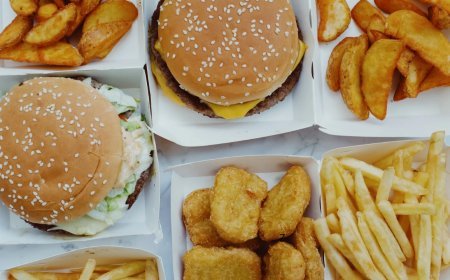Weight Loss Mistakes Everyone Makes and How to Fix Them
Avoid common weight loss pitfalls with this guide to the most frequent mistakes and science-based solutions for sustainable results.

Weight loss seems straightforward in theory, but common mistakes can sabotage your progress and make the journey much harder than necessary. Here are the most frequent errors people make and evidence-based solutions for lasting success.
Mistake 1: Extreme Calorie Restriction
The Problem: Eating too few calories (typically under 1200 for women, 1500 for men) slows your metabolism and leads to muscle loss. Your body enters 'starvation mode,' actually making weight loss more difficult over time.
The Fix: Create a moderate calorie deficit of 300-500 calories daily for healthy 1-2 pound weekly loss. Calculate your BMR (Basal Metabolic Rate) and eat at least this amount. Focus on nutrient-dense foods that keep you satisfied and energized.
Mistake 2: Eliminating Entire Food Groups
The Problem: Completely cutting out carbohydrates, fats, or other food groups is unsustainable long-term and can lead to nutrient deficiencies, intense cravings, and eventual binge eating episodes.
The Fix: Practice moderation instead of elimination. Include all macronutrients – complex carbohydrates for energy, healthy fats for hormone production, and adequate protein for muscle maintenance. Use the 80/20 rule: eat nutritiously 80% of the time, allow flexibility 20%.
Mistake 3: Focusing Only on Scale Weight
The Problem: Body weight fluctuates daily due to water retention, hormonal changes, food intake, and bathroom habits. Scale weight doesn't reflect positive changes like muscle gain or fat loss that improve body composition.
The Fix: Track multiple metrics including body measurements (waist, hips, arms), how clothes fit, progress photos, energy levels, sleep quality, and strength improvements. Weigh yourself weekly at the same time under same conditions, not daily.
Mistake 4: Ignoring Liquid Calories
The Problem: Beverages like fruit juice, soda, alcohol, specialty coffee drinks, and smoothies can add 300-500 calories daily without providing satiety or nutritional value equivalent to solid foods.
The Fix: Drink primarily water, herbal tea, and black coffee. If consuming alcohol, account for those calories in your daily total. Choose whole fruits over juice to get fiber and better satiety.
Mistake 5: Unrealistic Expectations and Timeline
The Problem: Expecting 2-3 pounds of weekly loss or dramatic physical changes within 2-4 weeks leads to disappointment, frustration, and often giving up before real results appear.
The Fix: Set realistic expectations of 1-2 pounds weekly loss. Understand that progress isn't linear – some weeks you'll lose more, others less, and some weeks the scale won't move despite positive changes.
Mistake 6: All-or-Nothing Perfectionist Mentality
The Problem: One 'unhealthy' meal turns into a 'ruined' day, then a 'ruined' week. This perfectionist mindset creates cycles of restriction followed by overeating and guilt.
The Fix: Practice self-compassion and flexibility. One meal or even one day doesn't ruin your progress. Get back on track with the very next meal, not tomorrow or Monday. Progress over perfection should be your mantra.
Mistake 7: Neglecting Strength Training
The Problem: Cardio-only approaches often lead to muscle loss along with fat loss, slowing metabolism and creating a 'skinny fat' appearance with little muscle definition.
The Fix: Include strength training 2-3 times weekly to preserve and build lean muscle mass. Muscle tissue burns significantly more calories at rest than fat tissue, supporting long-term weight maintenance.
The Sustainable Approach
Make small, consistent changes you can maintain long-term. Focus on building healthy habits rather than quick fixes. Allow flexibility and enjoyment in your eating plan. Seek support from friends, family, or professionals when needed.
View weight loss as learning sustainable lifestyle habits rather than a temporary diet. Gradually increase calories to maintenance level while continuing healthy practices that created your success.
What's Your Reaction?
 Like
0
Like
0
 Dislike
0
Dislike
0
 Love
0
Love
0
 Funny
0
Funny
0
 Angry
0
Angry
0
 Sad
0
Sad
0
 Wow
0
Wow
0







































